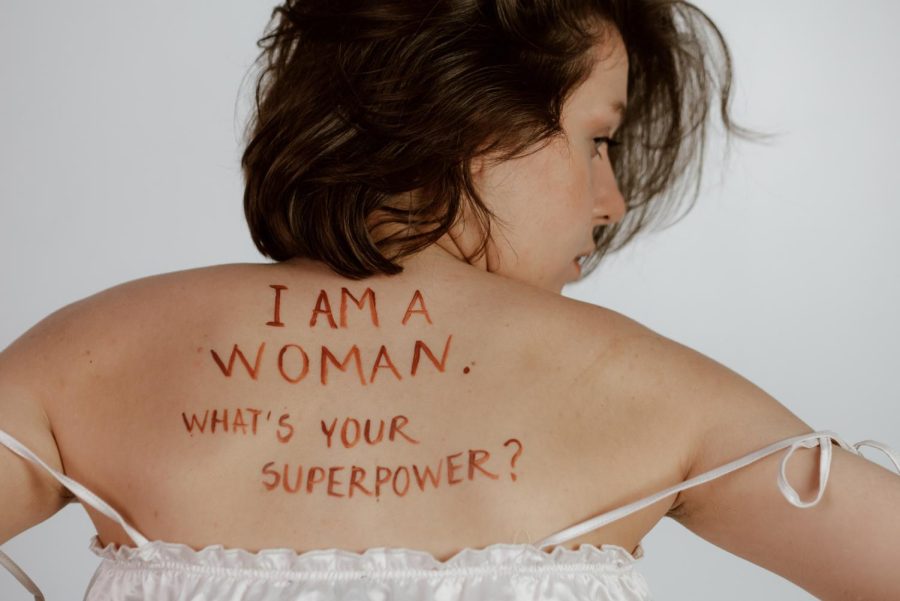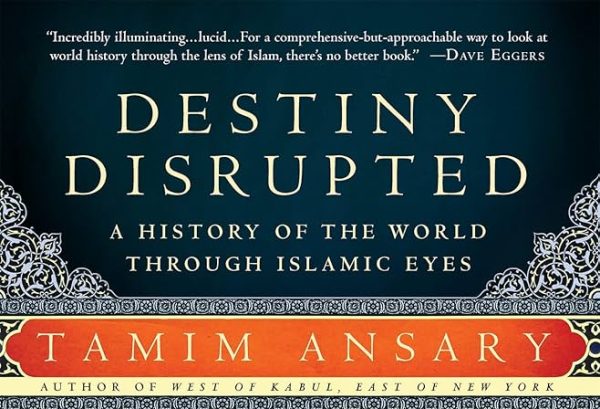Keep your words off my body
A woman looks over her shoulder has powerful words painted on her back make themselves known. Photo by Polina Kovaleva, courtesy of Pexels.
Up until about sixth grade I had no issues with my body. I wouldn’t say I thought I was the most beautiful girl, but I was comfortable with who I was. I didn’t think about body weight or hair or anything else, I was just me.
It wasn’t until my peers started saying things like “Wow, the circles under your eyes are really dark,” “Nice mustache” and “Have another cupcake,” that I realized that things were wrong with me.
Except nothing was wrong with me. It’s society that’s wrong for telling women they need to be thin, have perky breasts, big butts, a small waist and just be perfect in every way.
When people criticized me for having hairy legs, I immediately started shaving or wore pants. When people made fun of my weight, I would cry in bed and weigh the risks of not eating for a day or two. I thought maybe it would help, though I knew it wouldn’t.
Society’s perception of a woman’s body has been ever changing. Medieval art, such as Botticelli’s “Birth of Venus” and Rembrandt’s “Bathsheba at Her Bath,” show curvy women with differing shapes. But as time went on, thin waists became ideal and from there women were expected to slim down further and further.
Social media has replaced canvases on walls and sculptures on pedestals. It is here that people of all genders see the body shapes perpetuated by society. These “ideal” shapes have been described by a Treadmill Reviews survey, which says that on average women should be 5’5”, 128 pounds and have a 36-26-36 body shape. And men, on average, should be 6’, 187 pounds and have a 41-33-40 body shape.
In reality, according to CDC health faststats, on average women are 5’2”, 171 pounds and have a 38-inch waist. And men, on average, are 5’8”, 200 pounds and have a 41-inch waist.
“The images of perfection we see in the media, in print, film and television projects an unrealistic version of reality,” journalist Juliet Torrisi says in a Medium article.
Reality and desirability have constantly been at odds, even on the scientific level, with the use of the Body Mass Index. BMI is a chart that takes a person’s weight and divides it by their height to determine if someone is underweight, obese or somewhere in the middle.
While determining someone’s BMI can be helpful when taking health risks into consideration, it is not a fully effective measurement.
“BMI is a statistic that was never intended to be used to determine who is healthy and who isn’t on an individual level,” Dr. Jocelyn R. Lebow said in an interview with Mayo Clinic. “We have BMI ranges that are considered ‘normal’ that are completely arbitrary, and they’re not linked to health outcomes or what people actually look like.”
The CDC also says that BMI does not take age, sex, ethnicity and muscle mass into consideration. All of which are factors that also impact body shape.
Societal norms as a whole try to influence women to be their most perfect selves by buying make-up, investing in botox and plastic surgery, wearing flattering clothing, jewelry and so on. Nonetheless, it is ultimately up to us to determine our personal definitions of perfection and beauty.
Yes, mathematicians like Euclid and Pythagoras believed that symmetry defined beauty, thanks to what would be later called the golden ratio. But we each have an idea of what we find beautiful, even outside of society’s definition, which has few exceptions.
However, this doesn’t stop people from saying horrible things, even women insulting other women.
Psychology Today says that unconscious fear and a need to be in control can cause women to project fear, anxiety and jealousy onto other women. They can also lash out due to a lack of behavior correction, or because they derive personal enjoyment from the situation.
It is only through unity and support between women, and between all genders, that we can deflect society’s expectations, begin focusing on our individual perceptions and rebuild the self-confidence we all used to have as children.
Over the course of my life, I’ve had all kinds of people say mean things, but none compared to the way men thought they could treat me.
It was through my “guy best friends” that I learned about how some men think about women. It’s how I learned that I wasn’t radiant enough to be beautiful, thin enough to be sexy or gentle enough to be pretty. That I was cute, or at least I was when I wore a dress.
I also learned how these words: beautiful, sexy, pretty and cute could be used against women. We are beautiful and sexy when guys want something, generally sex, but we become ugly and a “bitch” when we say that one little word, “no.”
We all need to support each other through words and actions to protect against the world as a whole, to regain self-confidence, to regain self-love, reverse societal expectations, to just be us and decide what our personal idea of beauty and perfection is.
Ariana Powell can be reached at [email protected].








